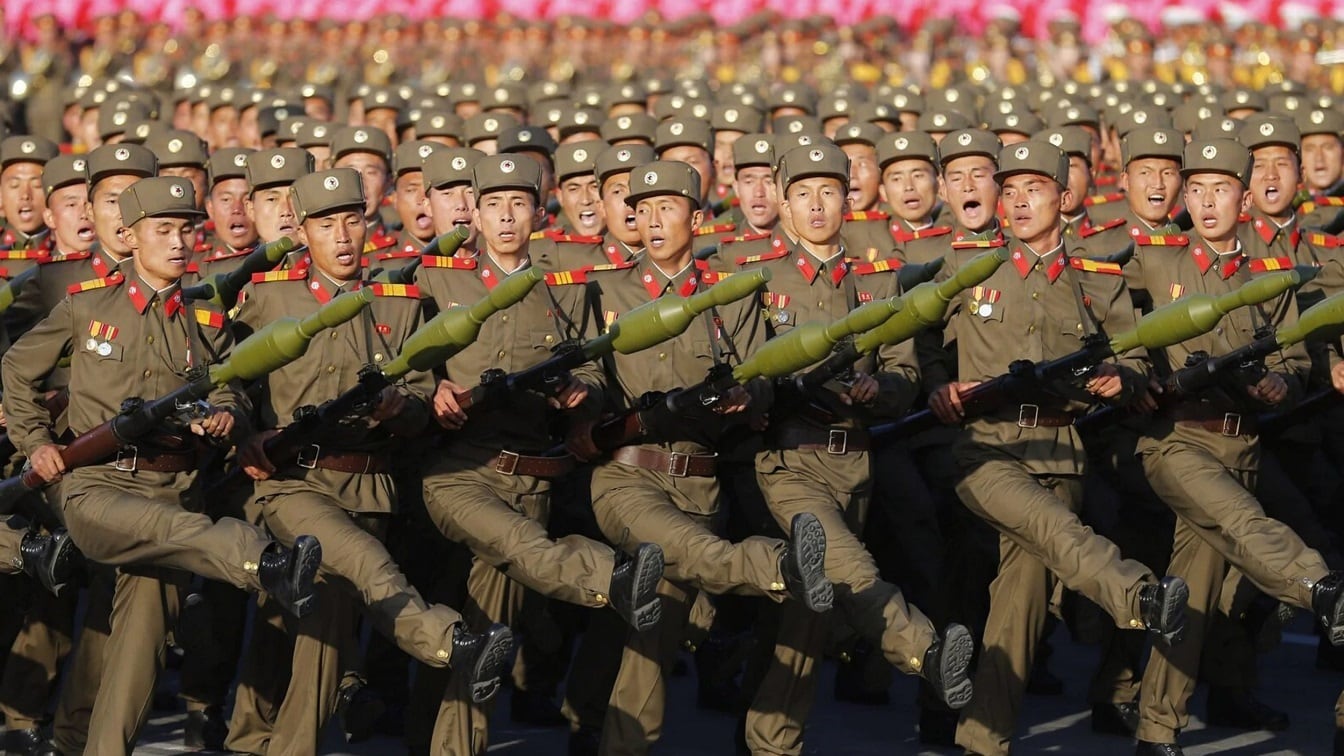The Korean War ended seventy years ago. The war did not formally cease though.
The two sides are still technically at war.
Hostilities paused under an armistice that has never been resolved into a final peace accord.
Every few years, there are calls to formally end the war with a peace treaty.
Those calls have been renewed this week. But these efforts fail again and again – correctly – for the same reasons.
No, the Korean War is Not Actually at War
Calls for a final peace deal usually start from the notion that Korea is an unresolved war, America’s longest war, a frozen conflict, and so on. This is legally true, but in practice, the war is long since over.
Korea is not a tenuous peace on the verge of relapsing into conflict at any moment. It is not an unstable ‘frozen conflict’ of the sort we see in the Caucasus or the Balkans. Hence the moral argument to end an active war is inaccurate. The armistice is stable.
This is an important point because there is no pressing humanitarian or strategic need to formally end the war at cost to South Korea. The war is over in practice, and the provisional resolution is reasonably stable. Disrupting that for something new is not worth it unless there is a real gain to be captured from a peace deal – and there is not (discussed below).
Indeed, the armistice is probably more stable than a final treaty, because the armistice keeps the UN on the peninsula and keeps the demilitarized zone (DMZ) intact.
The DMZ is a two-mile-wide demilitarized strip that runs the width of the country. It keeps the South Korean and North Korean militaries a bit distant from each other and almost certainly prevents accidents and mishaps where they are flush against each other on a traditional borderline.
No ‘Peace’ at Any Price
If a peace deal were to actually resolve the conflict in a durable manner – to make the two Koreas friends or partners – then it might be worth upsetting the current status quo. But there is little to suggest that.
Most calls for peace simply reify the competitive status quo into a treaty without actually doing anything to relieve inter-Korean tension. So long as that tension remains, then the armistice is actually better because it keeps the UN between the two Koreas.
A peace treaty would not demilitarize either side. It would not get North Korea to pull back its massive, forwardly-postured army from its position right next to the South Korean capital. It would not denuclearize or demissilize North Korea. It would not alter the Orwellian, frightening character of North Korea, so South Korea would not, in turn, shrink its own military or defense budget.
In other words, a peace deal would not alter the strategic situation. It would create no new trust. The two Koreans would still be arming and competing against each other. So it is unclear why a peace treaty is so important.
It would not do anything to warm the current cold peace. It would not bring the two Koreas closer together or relieve their competition.
To do that would require much more extensive talks and negotiations, the sort which has failed time and again since the 1990s. It is worth trying those again. But a peace treaty would not do much for those substantive negotiations. It is just a legalism.
What the treaty would do though, is undercut the rationale for the United Nations and the United States to stay on the peninsula. This is not in the interest of either stability or South Korea, which is why peace treaty efforts have always failed.
If the UN leaves, the two Koreas militaries would fill in the DMZ and be flush against each other. That would be much more dangerous than the current circumstances. And without the UN structure, the US position would also be more legally tenuous. A US withdrawal from South Korea would be a major win for North Korea. At a minimum, South Korea should not make such a major concession to North Korea without a major counter-concession. And that would be worked out in arms control negotiations to which a formal peace treaty would be irrelevant.
A Peace Treaty would Not Change Anything
A peace treaty would not end the hostility behind the Korean conflict, so it would be nothing more than legalism. There is no obvious value to it as long as the underlying issues are unresolved.
The only thing it would change on the ground is the UN presence, which would be withdrawn. This is far more dangerous than ‘peace’ advocates realize. The Korean militaries would face each other directly, with no buffer between them. Because the peace treaty would not actually resolve the Korean competition, the elimination of the DMZ would make the peninsula more, not less dangerous. And if the US withdraws, South Korean security would be jeopardized. This is why this argument has failed for seventy years and will again this week.
Dr. Robert E. Kelly (@Robert_E_Kelly; RoberEdwinKelly.com) is a professor in the Department of Political Science at Pusan National University and 19FortyFive Contributing Editor.

